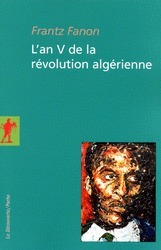What do you think?
Rate this book


182 pages, Paperback
First published January 1, 1959
"The power of the Algerian Revolution henceforth resides in the radical mutation that the Algerian has undergone"
"Every new Algerian woman unveiled announced to the occupier an Algerian society whose systems of defence were in the process of dislocation, open and breached. Every veil that fell, every body that became liberated from the traditional embrace of the haik, every face that offered itself to the bold and impatient glance of the occupier, was a negative expression of the fact that Algeria was beginning to deny herself and was accepting the rape of the colonizer. Algerian society with every abandoned veil seemed to express its willingness to attend the master's school and to decide to change its habits under the occupier's direction and patronage" (28)